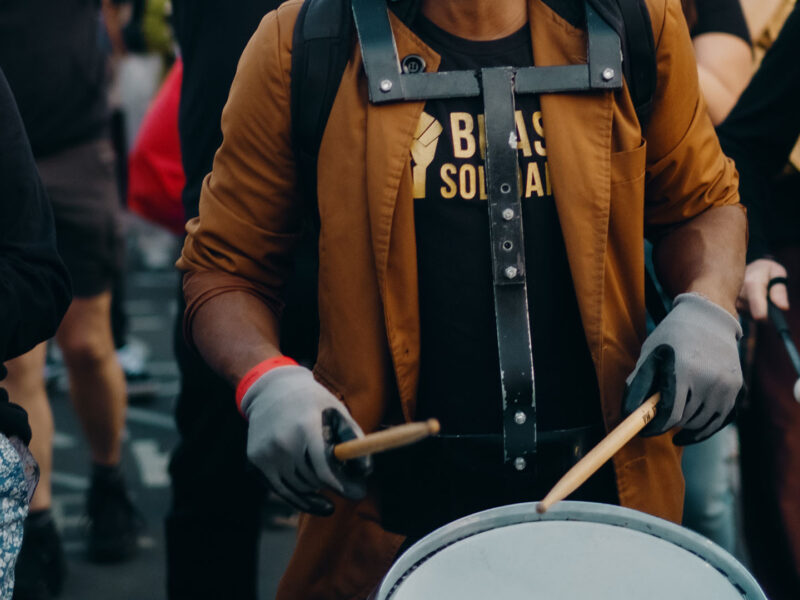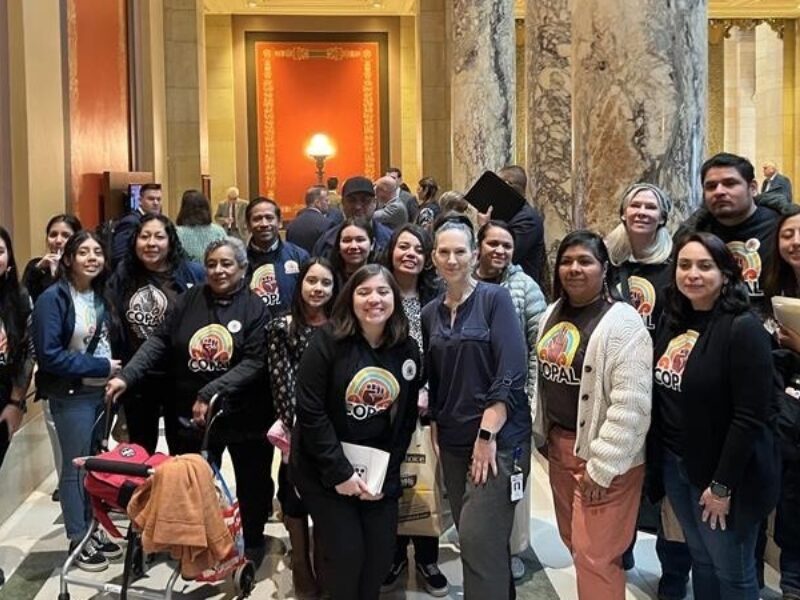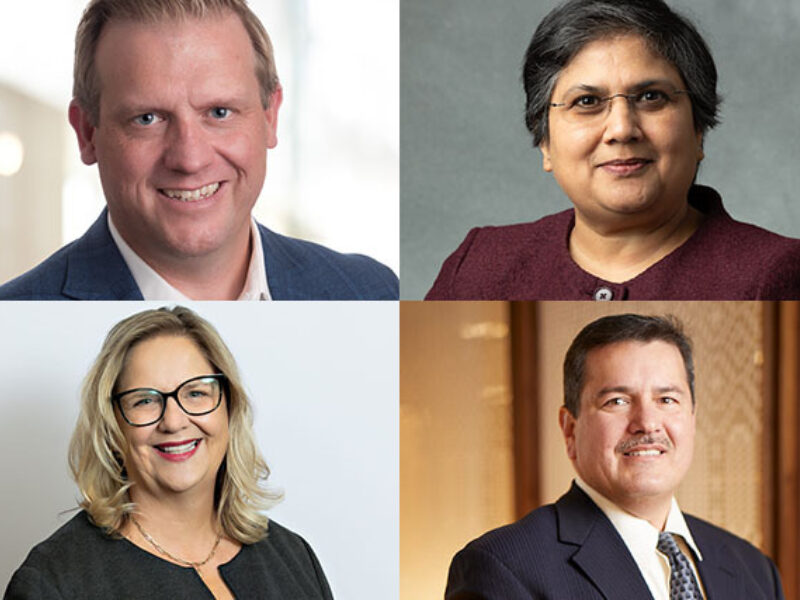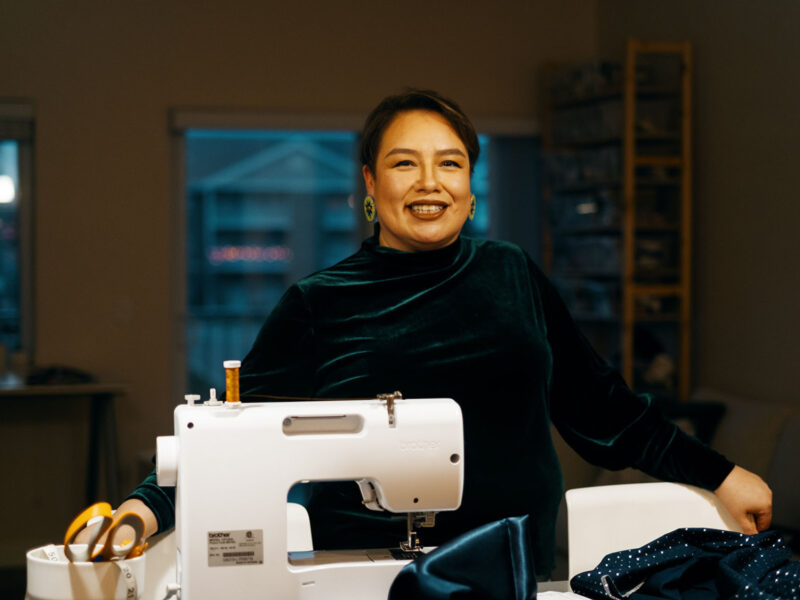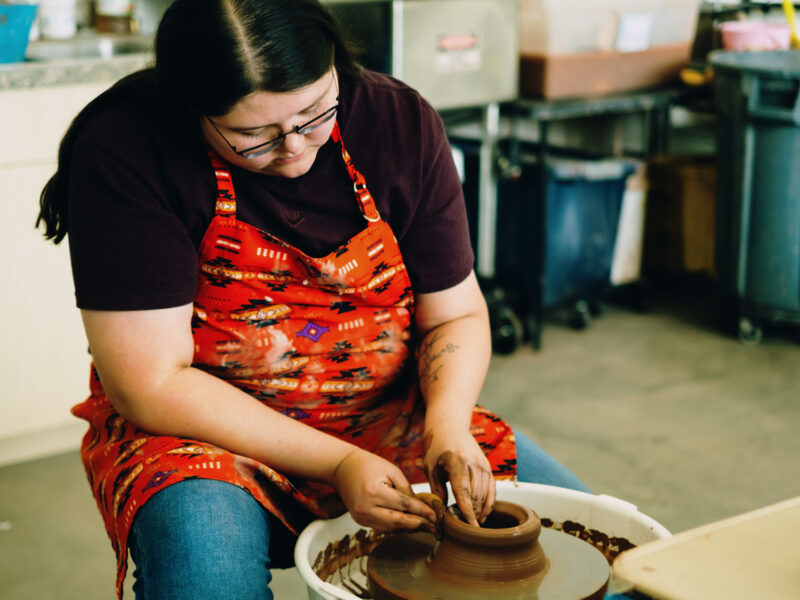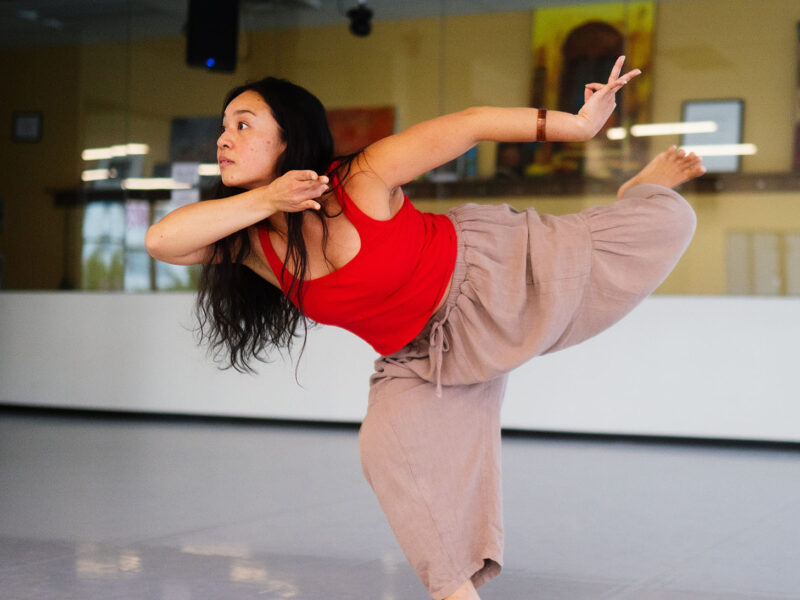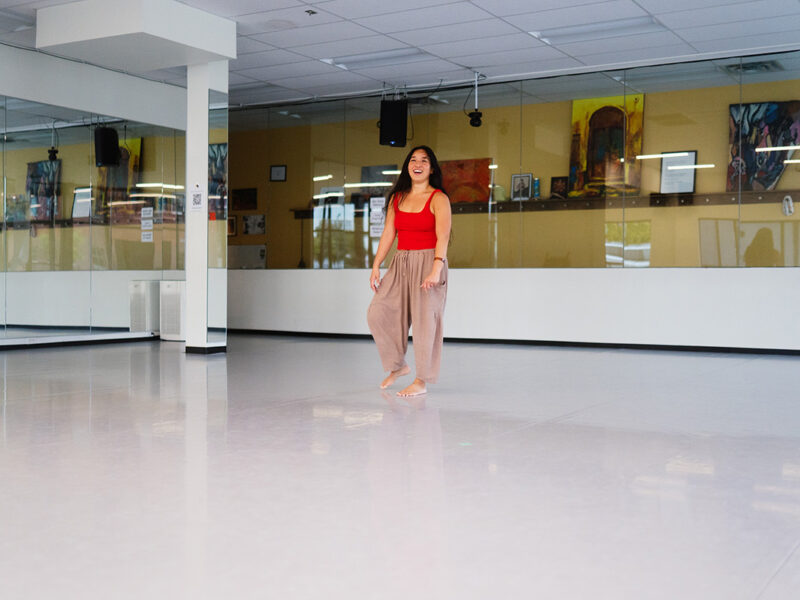Learn how former Foundation board member Adine Momoh, Esq. uses her career in law to create equitable opportunities for others.

Attorney Adine Momoh’s desire to give back stems from her parents.
A first-generation American, Adine’s parents emigrated from Sierra Leone, West Africa to the U.S. in the 1970s. As a child, the Saint Paul & Minnesota Foundation board member watched her parents find ways to give back to the community, both in their new home of Saint Paul and their old home in Sierra Leone.
They also instilled in her the values of education, hard work and resiliency, which eventually led Adine to a career in law. From a young age, she knew she wanted to be an attorney.
In law school, Adine honed her legal skills while continuing to volunteer and serve as a summer associate at Leonard, Street and Deinard (now Stinson LLP), where she currently works. This experience taught her that law, civic engagement and serving the community weren’t mutually exclusive. We recently had the opportunity to chat with Adine about how these issues connect, as well as her passion for people, equity and law.
Who inspired you the most to give back?
Because of my parents, I have been inspired to serve my community. In all that I do, my parents continue to teach me that I should remain humble and pay it forward by giving back.
I work hard to not only be in the room or at the table when decisions are being made, but to also listen, inspire and use my voice to raise difficult questions and bring people together to create bold solutions. I help by leaning into my interests in the law, racial and gender equity, judicial reform and improving access to justice.
What inspired you to go into law?
Since the age of six, I knew that I wanted to be an attorney. At that age, I certainly did not know what sort of law I wanted to practice. But I have the necessary skills of an attorney. I love reading, researching and writing. And I have a unique knack of being able to solve problems by thinking outside the box, spotting issues, and remaining focused.
My interest in business law developed in college, where I triple majored in Legal Studies in Business – Business Administration, Psychology, and Pre-Law. I chose Legal Studies in Business because it was a new program developed at the University of St. Thomas Opus College of Business in response to the Enron scandal. The goal of the program was to teach students that maximizing shareholder wealth does not have to be accomplished at the expense of acting ethically.
What do you do in your role?
As an equity partner at Stinson LLP, I serve as a trial attorney focusing on bankruptcy, bankruptcy appeals and creditors’ rights. I also co-chair the firm’s Estates and Trusts Litigation Practice Group, where I leverage my experience in estates and trusts litigation and bankruptcy and creditors’ rights to lead a national team of attorneys in providing sophisticated advice and advocacy when disputes arise involving wealth management, wealth transfer and tax strategy.
I work hard to put myself in spaces where I can better advocate for and understand my clients, their industries, and the statewide and nationwide business and political climates that impact their day-to-day. My clients include individuals and business (ranging from Fortune 500 companies to start-ups) in diverse industries, such as financial services and wealth management, health care, natural gas, medical gas, nonprofits and foundations, telecommunications and government contracts, as well as pro bono and low bono clients facing business disputes, criminal prosecution, housing, divorce and child custody, domestic abuse, habeas corpus, immigration, civil rights and other issues.
How does your background in business administration and psychology serve you in your current roles?
Psychology and business are always a part of what I do. The legal profession is about service, in particular, people and relationships — with the client, colleagues, opposing counsel and the ultimate fact finder (judge, arbitrator or jury). While there may be disputes, resolution is often the common goal. It is helpful to understand that not everyone thinks the same way, facts matter, knowing the rules is always an advantage, and you cannot follow a one-size-fits-all approach.
How does diversity, equity and inclusion tie into your work, mission and role as a legal professional?
We all have a responsibility toward racial equity. I am committed to diversity and inclusion in the legal profession, and to the principle of equal access to justice and its administration.
In the United States, approximately 0.8% of “BigLaw” firm partners are Black women, and in Minnesota, there are less than five of us. With respect to bankruptcy law, I can count on one hand the number of Black bankruptcy attorneys that I know in Minnesota. I am proud to be one of them, but we have to do better.
I have learned to be resilient and relentless in my pursuit of excellence and have learned that I cannot wait for someone to invite me to the table. I either have to find my seat or create one.
I served four years as an at-large director on the Board of Directors of the Minnesota Association of Black Lawyers, a National Bar Association affiliate. I mentor attorneys and law students alike, and frequently prevail in my firm to expand the landscape of opportunities for attorneys from diverse backgrounds through my service on Stinson’s Diversity and Inclusion Committee. Further, through my work with various organizations such as the Hennepin County Bar Association, Federal Bar Association, and Minnesota Women Lawyers, I work to educate attorneys on issues regarding the practice of law, pro bono opportunities, and racial and gender equity in the courts and workplace.
Why are these issues so important to address?
As women of color, we are often walking the road as we are paving it for others. My experience is no different. I am hopeful things will change and diversity and inclusion will be less of a tagline, and more of a business imperative.
“We all have a responsibility toward racial equity. I am committed to diversity and inclusion in the legal profession, and to the principle of equal access to justice and its administration.”
Adine Momoh

How did you get involved with the Foundation?
My involvement with the Foundation has been pretty linear. As a Saint Paul native, I had observed and experienced firsthand the Foundation’s work in the community, from its connection to the Saint Paul Public Library (where my parents would take my brothers and me two or three times a week), the Science Museum (where my parents would take my brothers and me to visit each Sunday), the Saint Paul Parks Conservancy and many others.
I first was introduced to the Foundation leadership by a former law partner, mentor and friend, Robyn Hansen. At the time, the Foundation was seeking ways to increase the diversity of its board, not only with respect to race, ethnicity and nationality, but also with respect to age, leadership experience and professional background.
Through conversations with Robyn, the Foundation’s then-CEO and President, and other board members, I knew the Foundation Board was a good fit for me. I was elected to the board in 2014 and have served on the board since January 2015.
Since joining, I have served in multiple leadership roles, including Vice Chair of the Foundation’s Governance Committee and Audit and Finance Committee. I currently chair the Foundation’s Community Impact Committee and serve on the Foundation’s Executive Committee.
I bring a unique voice to the board as a Black, millennial, woman and mom who is from the community that the Foundation serves. I am one of the few millennials on the board, and to me, being a millennial is not only an age group. It is also a way of thinking.
What are your thoughts about the Foundation’s mission and impact? Did that play a role in why you got involved?
Shortly after I joined the board, the Foundation began a search for its new CEO and President. When Dr. Eric Jolly joined the Foundation, he brought a clear vision of where he wanted the Foundation to go. Part of that vision included a new strategic plan, a new purpose and a new way to measure our efforts and impact.
But the Foundation’s guiding principle is simply stated as who informs, forms and benefits. This is a mantra that many in the Foundation, including the CEO, staff and board members, say quite regularly with respect to the Foundation’s operations and day-to-day. In other words, “our community should not only benefit from our work, but inform and form it as well.”
This renewed focus has certainly kept me engaged as a board member and played a key role in my decision to chair the Community Impact Committee. For instance, the Foundation grants now include general operating support to nonprofits that found themselves facing an increased need for funding in 2020 and 2021 due to COVID-19, as well as nonprofits that were newly formed or created programs in response to the civil unrest following George Floyd’s murder in May 2020.
The Foundation also has other funds available to provide for the community in times of crisis, including various discretionary grant funds and the Community Sharing Fund. It has invested in new technology that will allow us to provide grants more efficiently and better track the impact of our dollars. I look forward to being able to look at the data to see how many new nonprofits we were able to fund.
Why do you think this type of work is important to the world we live in today?
I believe in the Foundation’s work and the principle “who informs, forms, and benefits” because programs and policies that are created through collaborative, bottom-up community-led and driven processes instead of top down processes allow for greater buy-in, inclusivity and multiple voices to be considered. This ultimately leads to sustainable and long-term benefits.
What are your hopes for the future of the Foundation as well as for the legal system and field?
I hope that the Foundation continues to support policies and programs that are meaningful and truly address racial equity. With respect to the legal system and Minnesota overall, I want to do my part to make our community safer, more just and more equitable.



